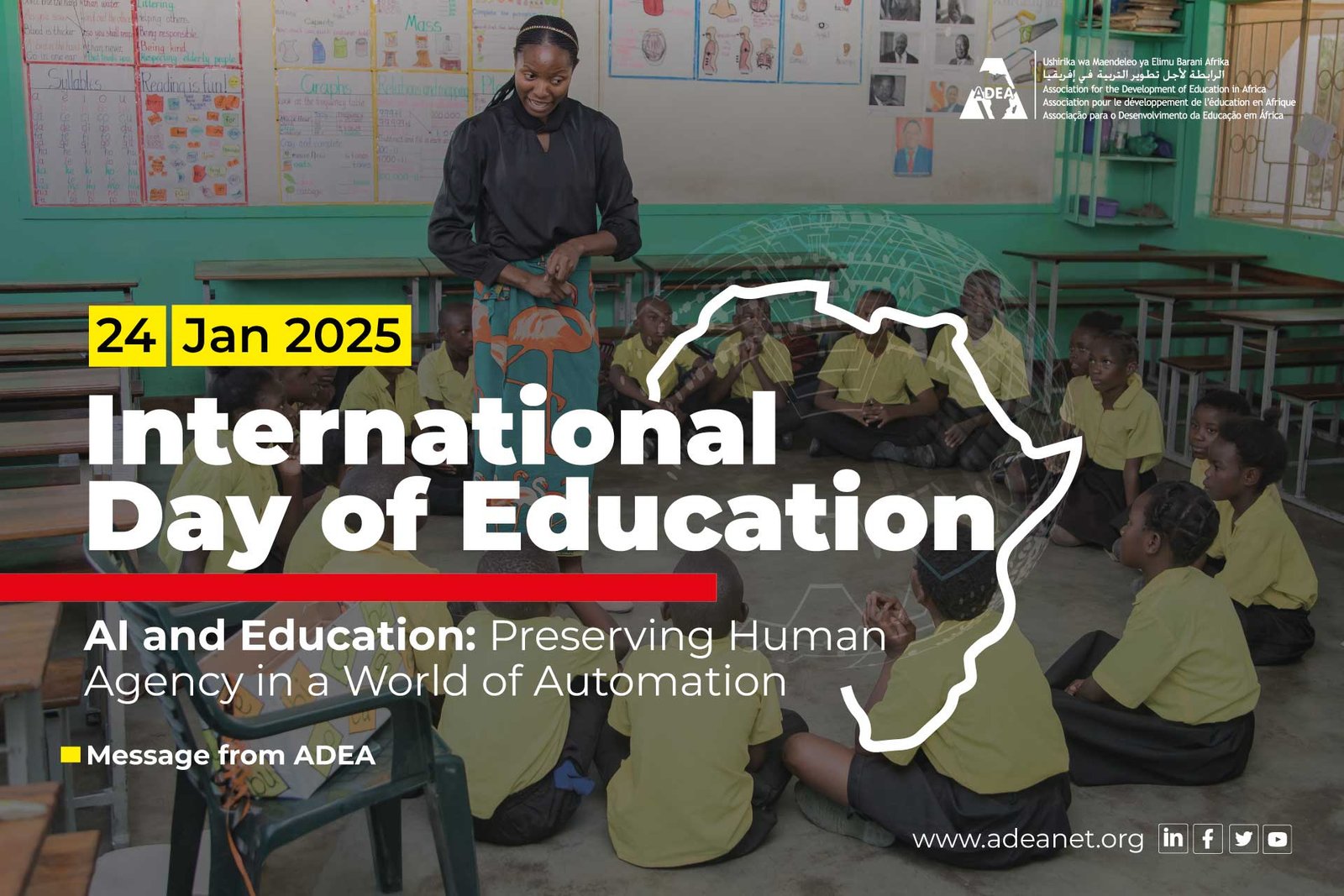International Day of Education 2025

Today is the International Day of Education (IDE). The day is celebrated globally to highlight the importance of education as a fundamental human right and a tool for sustainable growth and development of humanity. The theme for this year’s commemoration is, “AI and education: Preserving human agency in a world of automation.” It encourages us to reflect on the power of technology in improving access to and equipping individuals and communities with quality education that helps them to navigate, understand and influence the world.
It is yet another opportunity to reflect on Africa’s progress towards strengthening its learning systems, especially with the use of education technologies (EdTech).
The COVID-19 pandemic tested the resilience of educational systems in the face of a debilitating health emergency that resulted in school closures. It remains a pivotal moment in Africa’s education, limiting access, worsening learning outcomes, and bringing to the fore the value of social and emotional skills. But it was also the trigger for a global rally to support the continent’s efforts to address these issues and leapfrog the 4th industrial revolution.
Several studies have demonstrated the central role of technology-driven education in making this happen. For instance, our study on the Use of ICT in Education and Remote Learning during Crisis in 30 African countries demonstrated the level of preparedness of these countries to integrate technology in their learning systems. We went further to develop the remote education benchmarking toolkits to support countries with a resource to support their EdTech integration efforts as part of strengthening the resilience of their educational systems. Our partnership with the Mastercard Foundation Centre for Innovative Teaching and Learning (CITL) and 30 African countries seeks to leverage EdTech to strengthen the countries’ capacity, over five years, to produce and use quality education and skills data for informed decision making at policy, planning, programme, monitoring and impact evaluation.
The growing ubiquity of artificial intelligence (AI) provides a chance to automate most routine activities in education, thus freeing up resources for more demanding issues. AI also offers an opportunity to facilitate learning away from the classroom, build and deepen teacher capacity, strengthen the curriculum development process, and enhance evidence-based decision-making. It is also a key tool for countries seeking to strengthen remote learning, especially as most grapple with education infrastructure and access. Essentially, the capacity of AI in education is limitless!
ADEA has recognized the value of AI and embedded EdTech as a cross-cutting pillar in our five-year strategic plan. We are also reviver-establishing the ICT in Education community of practice for continuous peer learning, knowledge exchange, and support to countries around EdTech integration. ADEA will continue to convene and support member countries to embrace innovative and scalable ways of leveraging EdTech in foundational learning, TVSD, higher education and school leadership.
We will actively pursue collaborations at the national, regional and continental levels to shape the future of AI in education in Africa by supporting the creation of AI policies at national level, improving the link between systems and the classroom through better management and strengthening the capacities of teachers to confidently teach AI.
Technology holds tremendous power to transform education in Africa at all levels, by fostering innovation, expanding access, improving inclusion and quality. By leveraging technology, Africa can build an inclusive, dynamic and forward-thinking structure in its educational systems.
Happy International Day of Education!